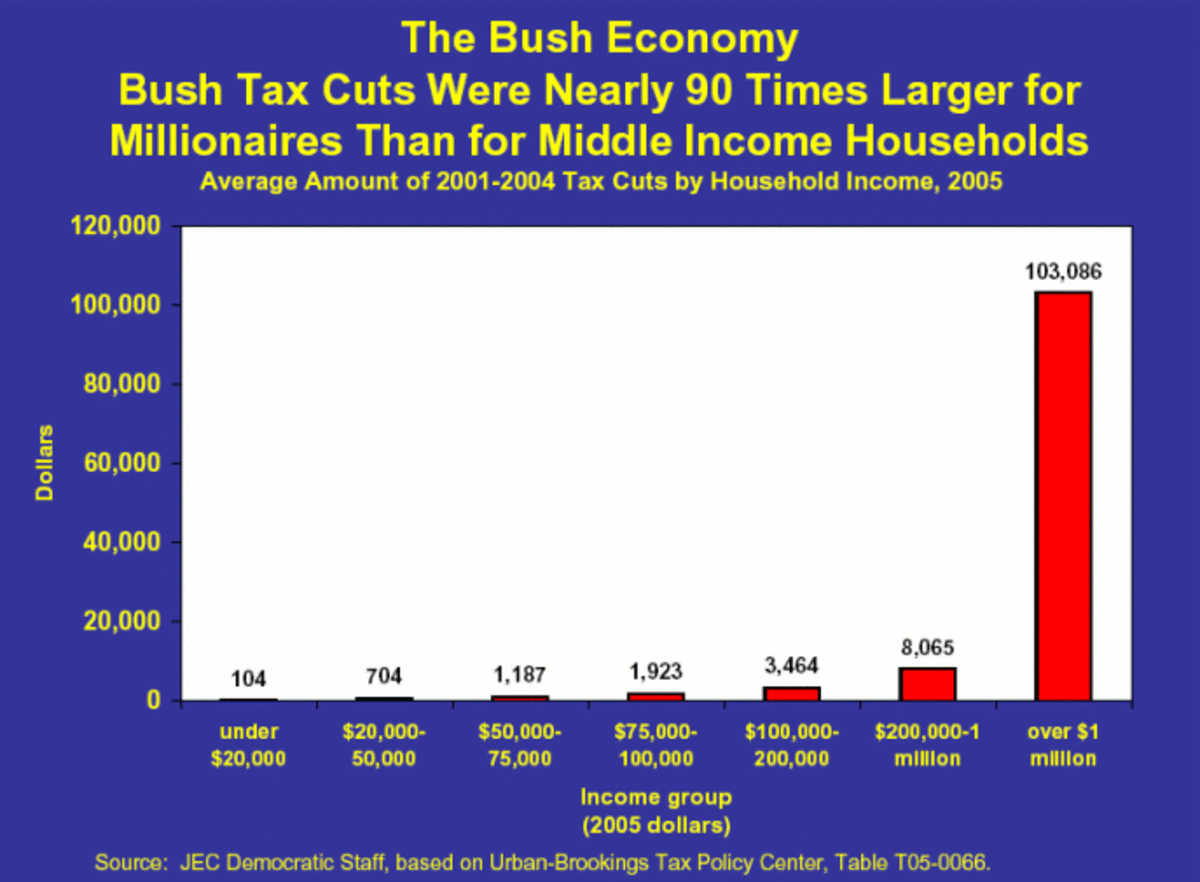Politics and High-Fructose Corn Syrup
High-Fructose Corn Syrup is Simply Sugar Produced From Corn
June 28, 2009
High-Fructose Corn Syrup is becoming more and more common these days as it is appearing on the ingredient labels of more and more foods. A few people have questioned the possible health effects of this ingredient and this has caused the industry to respond with a series of TV and print ads promoting the benefits of high-fructose corn syrup.
High-fructose corn syrup is a type of sugar that is produced from corn and it is being increasingly used as a substitute for cane and beet sugar as a sweetener. Like cane and beet sugar, high-fructose corn syrup provides energy for the body to burn, will not help dieters lose weight and has the same effect on the body as regular sugar as far as people with diabetes are concerned. High-fructose corn syrup is not to be confused with artificial sweeteners which are designed to provide the sweet taste of sugar without the other effects of sugar described in the previous sentence.
Why High-Fructose Corn Syrup?
This Hub is not about the health effects of high-fructose corn syrup. I am not an expert on this topic and, from what little I have read, high-fructose corn syrup appears to me to be a simple substitute for cane or beet sugar and its consumption should be regarded as the same as regular sugar.
The question that I am addressing in this Hub is, since high-fructose corn syrup is basically the same as regular sugar from sugar cane or sugar beets why are we suddenly using this corn product in place of the traditional sugar our society has used for the past 500 years?
The simple economic answer is price. High-fructose corn syrup costs less than regular sugar. Not only does it cost less but it is also more readily available due to increasing demand for sweeteners and shrinking supply of cane and beet sugar as sweeteners.
It is About Politics, NOT Economics
If the switch to high-fructose corn syrup was just about economics, this Hub would have ended with the paragraph above. However, while the forces of supply and demand are the economic reason why high-fructose corn syrup is less expensive than cane sugar we are not talking about the invisible hand of the market guiding the price but rather the price being guided by the greedy hand of Congress paying off special interests in the sweeter market.
In the case of both regular sugar and high-fructose corn syrup this is more than Congress's favoring one group at the expense of another. Here they are helping to channel money to both groups at the expense of American taxpayers and consumers.
As I discussed in the section entitled The Politics of Sugar, in my previous Hub on Political Rent Seeking, as far back as the early years of the Twentieth Century, Congress began protecting American sugar producers with tariffs on imported sugar.
Tariffs and Quotas
Tariffs have historically been a key revenue source for governments since ancient times. However, their are two types of tariffs. The first is known as a revenue tariff and this type of tariff is simply a tax, like a sales tax, that is designed to produce revenue for the government. The second is known as a protective tariff and this type of tariff is designed to make it unprofitable to import and sell the product being taxed. While the importer is forced to pay the tariff when the goods enter the United States, the importer adds the cost of the tariff to the product thereby making the consumer the ultimate payer of the tax. Like most taxes on business, tariffs, both revenue and protective, are a means by which Congress can extract money from citizens without taking responsibility for taxing them directly.
Ironically, while liberal politicians refuse to acknowledge that high income taxes can discourage work they readily use high protective tariffs to discourage the importation of products that compete with the products of their special interest supporters.
Both revenue and protective tariffs have played a major role in American history. Prior to the passage of the Sixteenth Amendment to the Constitution which allowed the Federal Government to tax people's incomes, revenue tariffs were the major source of revenue for the Federal Government. Protective tariffs have been used from the early years of the Republic down to the present and it was outrageously high protective tariffs which led to the Civil War in the mid-Nineteenth Century.
In addition to high protective tariffs, Congress has also enacted various import quotas on sugar. Unlike tariffs, quotas don't generate revenue for the government (however, like tariffs, they do require the government to spend considerable amounts of taxpayer money to pay bureaucrats to manage and enforce them as well as higher lawyers to write the complex laws and regulations). Instead, quotas put an absolute limit on the amount of the product that can be imported so that, even if people want to pay the high cost that results from the addition of the tariff, they can't. Quotas are thus a more direct way to drive up the price of an imported product thereby making it uncompetitive with those produced by special interests who support Congressmen backing such legislation.
American Citizens End Up Paying for All of This Many Times Over First as Taxpayers and then as Consumers
As I stated in my recent Hub about Treasury Secretary Geitner and his income tax problems the Federal Tax Code consumes over 100,000 of highly complex legalese and is growing daily. Sugar quotas and tariffs have added their share to this mess as well as adding to the ever growing body of federal regulations. All of these cost citizens, in their capacity as taxpayers, money to support and manage this as well as, in their capacity as consumers, money to pay the additional cost not only of sugar but of every product that contains sugar.
Then we come to high-fructose corn syrup which is less expensive than sugar solely because we, as taxpayers, have been paying farmers growing corn to grow more. In other words, high-fructose corn syrup is less expensive than sugar ONLY because we have been forced to pre-pay the difference with our tax dollars in advance.
And, it doesn't stop here as, in addition to subsidies for growing corn, we also have our tax dollars subsidizing the production of corn based ethanol in order to make it affordable at the gas pump and then are forced, by law, to purchase the subsidized ethanol in order to run our vehicles. Of course, this additional subsidy and legally mandated artificial demand for corn based ethanol drives up the price of high-fructose corn syrup thereby making us spend more at the grocery checkout. Don't worry, if high-fructose corn syrup, despite its numerous taxpayer supplied subsidies, begins to become more expensive than sugar you can be sure that both the sugar and corn special interests will see to it that their friends in Congress increase the tariffs and quotas on imported sugar.
Government is Usually the Problem and Rarely the Solution
Former President Ronald Regan was fond of pointing out that the government doesn't solve problems, rather IT IS THE PROBLEM. And, the story of the politics of high-fructose corn syrup is but one tiny illustration of how politicians in Washington work tirelessly to make sure that we, as a nation, never run out of problems.
Links to My Other Hubs on the Economics of Government Regulation and Taxation
- Tax Protests and Tea Parties - An American Tradition
Tea and taxes became entwined in American culture as a part of our violent birth as a nation when the original thirteen colonies rose in armed rebellion against England's King George III and his tax policies.... - How Tax Cuts Work
- Political Rent Seeking
Mention the word rent to a layman and it congers up images of the payment for temporary use of an apartment, house, car or other type of property. A renter simply pays for the temporary use of a piece of... - Rolling Stones Prove Tax Cuts Work
In a previous hub entitled How Tax Cuts Work I attempted to explain how reducing high marginal tax rates encourages people to work and produce more. This leads to a larger income base on which to levy taxes... - Democrat vs Republican Tax Cuts
In a previous Hub (see "How Tax Cuts Work") I discussed how a supply side tax cut works. For the past quarter of a century tax cuts have been synonymous with supply side economic theory and Republican... - The Pros and Cons of the Bush Tax Cuts. Do they really favor the wealthy or is that a myth? What wil
Those who favor the continuation of the Bush tax cuts argue that these cuts are needed to encourage investment which, in turn, will result in a stronger economy and more job creation. As I pointed out in my... - Politics and Falling Oil Prices
Senator John McCain becomes convinced that we should expand oil drilling off our coasts and in the lower forty-eight states. President Bush overturns an executive order banning more offshore drilling. Senator... - How Markets Work - The Case of Falling Gasoline Prices
October 20, 2008 Since peaking at a price of around $145 per barrel in July of 2008, the price of crude oil has been falling at a fairly rapid rate. By mid-October 2008 the price of a barrel of crude oil... - Young French Workers Vote With Their Feet
As expected, France's April 22n, 2008d runoff election narrowed the field to the two candidates everyone has been predicting would be the final two to face off for the coveted prize in the May 6, 2008 final... - Reigning in Government Spending - Arizona's Proposed Prop 105
October 26, 2008 Like many western states which gained statehood status in the late nineteenth and early twentieth centuries, Arizona's Constitution makes it easy for citizens to bypass the legislature and... - Blame Washington - Not Wall Street for the Current Financial Crisis
The collapse of many financial institutions and the implications of this for the economy is the major economic concern in the United States and around the world as we head into the last quarter of 2008. The... - Should we Produce More Food or More Biofuel?
Before answering this question it would be helpful to define who "we" refers to and, once that is determined, how "we" are to make our wishes on the topic known. If we refers to a family that owns property... - The Politics of Ethanol
The internal combustion gasoline engine has been a major target of many environmentalists in their efforts to reduce pollution and clean up our environment. Because of the large and growing numbers of... - How Do You Feel About the Head of the IRS being Someone Who Hasn't Paid His Taxes?
By this question I presume that you are asking for opinions on recent revelations that New York Federal Reserve President and current Treasury Secretary designate, Timothy Geitner, failed to pay Social... - Bailing out America's Big Three Automakers Is Bad Policy
In the closing days of November 2008 the big national debate is about whether or not to bail America's big three auto companies (GM, Ford and Chrysler) out of the mess that has resulted from past management's...











